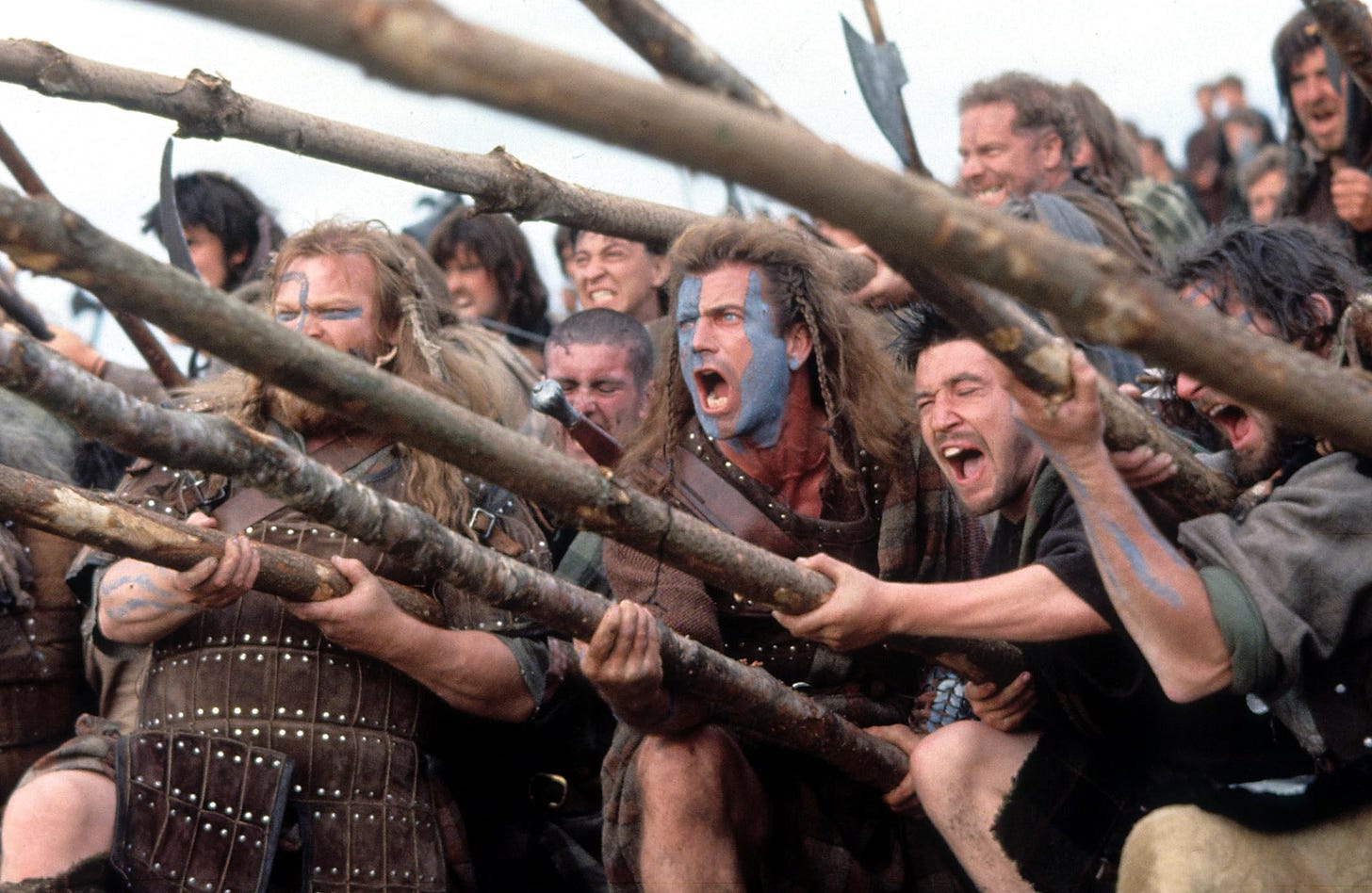Mel Gibson’s Scottish play: ‘Braveheart’ turns 30
In 1995, Gibson donned long hair, blue facepaint and a kilt- and won a bunch of Oscars for a film that’s exciting, even if very little in it is true.
A lot of movie stars aim of cashing in the chips of their movie star capital, putting together a personal auteur project that they direct and star in, and riding it to Oscar glory.
That happened successfully a couple of times in the 1990s, first in 1990 with Kevin Costner and Dances With Wolves — a project that Costner would spend the ensuing decades trying to repeat — and again in 1995, when Mel Gibson made Braveheart. Gibson produced, directed, and starred in the film, which was nominated for ten Oscars and won five, including Best Picture and Best Director.
Braveheart was released on May 24, 1995, 30 years ago last week.
Aside from various historical inaccuracies, some incongruous homophobia, and let’s just say, everything we’ve learned about Mel Gibson in the years since, Braveheart holds up fairly well and is one of the better Best Picture winners of the 1990s. It was a decade when the Best Pictures at the beginning (Silence of the Lambs, Unforgiven, and Schindler’s List) were considerably better than the ones that came later (Shakespeare in Love, American Beauty), so Braveheart lands about in the middle. The Best Picture of 2000, Gladiator, runs in my mind similarly to Braveheart, to the point where there were certain lines where I have trouble remembering is in which of those two movies.
Based loosely on the epic poem The Actes and Deidis of the Illustre and Vallyeant Campioun Schir William Wallace, by Blind Harry, Braveheart was written by Randall Wallace, who reputedly had a loose claim of being a descendant of the 13th-century Scottish freedom fighter William Wallace. Gibson later agreed to direct and star in this three-hour epic film featuring elaborate battle sequences, plenty of opportunities for heroism, swashbuckling, killing English people, and scenes where Gibson gets tortured on camera, which South Park memorably mocked him for.
As the film tells it, William Wallace was motivated to fight the English after his father and brother, and later his new wife, were murdered, and especially after the evil English king Longshanks (Patrick McGoohan) institutues prima nocta, the (probably apocryphal) decree that the king and his lords can bed any woman they want (though I hear it may be making a comeback.)
Wallace fights back, raises an army, and even romances the daughter of the king’s son (played, probably not historically accurately, as both a weakling and a homosexual, leading up to the infamous scene where Longshanks throws his son’s lover out a window.)
Wallace’s army wins some battles, although he’s executed before the rebellion can fully succeed. The story of his successor, Robert the Bruce, has been told in numerous films, including The Outlaw King, a few years ago.
Gibson leads a talented cast of English, Scottish, and Irish performers, including Brian Cox, Brendan Gleeson, Angus McFadyen, and Tommy Flanagan. Catherine McCormack plays Wallace’s first wife, and Sophie Marceau his lover later in the film.
And whatever you think of Gibson, he can certainly direct. It’s a beautifully rendered picture, including some fantastic battlefield filmmaking. The Oscars for Gibson for directing and John Toll for cinematography were both well-deserved. (The other wins were for Best Makeup and Best Sound Effects Editing.)
Keep reading with a 7-day free trial
Subscribe to The SS Ben Hecht, by Stephen Silver to keep reading this post and get 7 days of free access to the full post archives.




